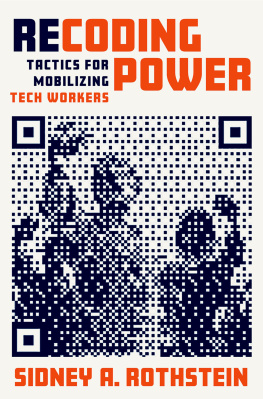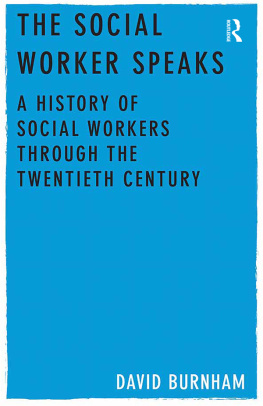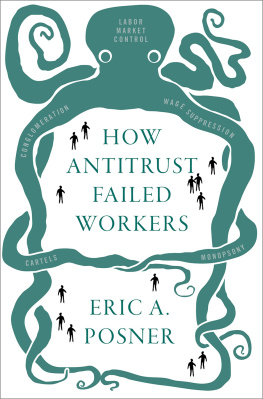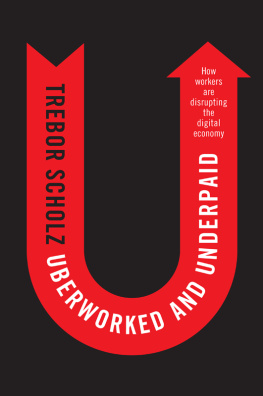Recoding Power

Oxford University Press is a department of the University of Oxford. It furthers the Universitys objective of excellence in research, scholarship, and education by publishing worldwide. Oxford is a registered trade mark of Oxford University Press in the UK and certain other countries.
Published in the United States of America by Oxford University Press
198 Madison Avenue, New York, NY 10016, United States of America.
Oxford University Press 2022
All rights reserved. No part of this publication may be reproduced, stored in a retrieval system, or transmitted, in any form or by any means, without the prior permission in writing of Oxford University Press, or as expressly permitted by law, by license, or under terms agreed with the appropriate reproduction rights organization. Inquiries concerning reproduction outside the scope of the above should be sent to the Rights Department, Oxford University Press, at the address above.
You must not circulate this work in any other form and you must impose this same condition on any acquirer.
Library of Congress Control Number: 2022933013
ISBN 9780197612873
eISBN 9780197612897
DOI: 10.1093/oso/9780197612873.001.0001
Contents
This book is based on the experiences of workers confronting one of the most traumatic events in their careers and maybe their lives. In a world where ones welfare and the welfare of ones family depend on earning a wage, being targeted for dismissal represents an existential threat. I remain extremely grateful to those workers who agreed to share their experiences with me, as well as the labor union representatives, organizers, public officials, and managers whose generosity and trust made this book possible.
I am deeply indebted to academic communities on both sides of the Atlantic. Julia Lynch, Rudra Sil, Jeffrey Green, and Tobias Schulze-Cleven provided essential guidance as this project got off the ground in the form of a dissertation, and their continued mentorship lit the way from there to here. Julie was uncompromising in the high bar she set for my dissertation, and once that was complete, she still held my work to the same standards, but also gave me the tools to meet those standards. She always asked precisely the question that I needed to answer in order to move the project forward. Rudys encyclopedic knowledge of not just comparative politics, but also labor relations and the history of social science, made it a pleasure (and a productive one at that) to discuss my findings with him. Jeffs critical stance challenged me to sharpen my argument at numerous points that I otherwise would have missed. It was from Toby that I learned about the German model in great detail, and as our conversations evolved into a project that resulted in a special issue of a journal and an edited volume, Toby also modeled for me the role of the generous coauthor.
When I first became interested in studying how power works in the tech workplace, Rogers Smith graciously agreed to supervise an independent study, which was immensely helpful in situating the project on firmer ground. Adolph Reed provided concrete support at a critical stage, ensuring not just that I was able to begin fieldwork but also that I did so with a more nuanced notion of tech workers position in the class structure. Conversations with John Zysman led me to view tech workers in the broader perspective of capitalist development, especially in relation to finance.
One of the liabilities of seemingly endless research projects is that they produce seemingly endless drafts. I regret the amount of paper and energy this required, as well as the time and attention this has demanded of fellow scholars. Somehow, though, they have continued to produce high-quality research while also closely reading and providing generous feedback on my own attempts. Virginia Doellgast always found strong points in drafts I shared and helped me see how to improve other points that were less strong. As I wrestled with incorporating close analysis of ideas into comparative political economy, Mark Vails comments were invaluable in focusing my attention on how exactly to develop my argument.
Numerous colleagues have continued to shape my thinking by offering insightful comments on working papers and drafts, and during discussions about the project, including Begm Adalet, Sren Kaj Andersen, Osman Balkan, David Bateman, Rosemary Batt, Matthew Berkman, Michael Bernhard, Reinhard Bispinck, Craig Borowiak, Florian Butollo, Mark Cassel, Guzmn Castro, Werner Eichhorst, Sandra Engelbrecht, Ian Greer, Guy Grossman, Thomas Haipeter, Chris Howell, Christian Lyhne Ibsen, Anna Ilse, Wade Jacoby, Ulrich Jrgens, Daniel Kinderman, Martin Krzywdzinski, Daniel Liu, Cathie Jo Martin, Colm McLaughlin, James Meador, Kimberly Morgan, Oliver Nachtwey, Akasemi Newsome, Anne Norton, Dieter Plehwe, Britta Rehder, Alexander Reisenbichler, Thea Riofrancos, Daniel Seikel, Dawn Langan Teele, Kathleen Thelen, and Lowell Turner. Patrick Emmenegger, Jiwook Jung, Paul Marx, and Taekjin Shin shared their hard-earned data, saving me considerable time.
As I wrapped up fieldwork, it took some years for me to realize that I had moved to Germany, due in large part to my exceedingly gracious hosts. At the Hertie School of Governance, Anke Hassel provided invaluable comments on my research and connected me with a vibrant community of researchers. Martin Behrens welcomed me to the Wirtschafts- und Sozialwissenschaftiches Institut of the Hans-Bckler-Stiftung, where I received a one-of-a-kind crash course in labor politics as Martin and others broadened my understanding of the German model. Karin Goihl made my time at the Berlin Program for Advanced German and European Studies at the Freie Universitt Berlin both productive and enjoyable. At the Wissenschaftszentrum Berlin fr Sozialforschung and the Weizenbaum Institut fr die Vernetzte Gesellschaft, Martin Krzywdzinski integrated me into a community whose intellectual edge was matched by its social warmth, which I was able to experience whenever I returned to Berlin.
My time at the Max Planck Institute for the Study of Studies was a particular highlight, partly due to the incredible staff who made research a real joy. Moreover, colleagues at the Institute offered unparalleled insights on how to improve the book as it took shape, and many read and commented on draft chapters. I am particularly grateful to Lucio Baccaro, Jens Beckert, Bjrn Bremer, Donato DiCarlo, Kostas Gemenis, Martin Hpner, Mikell Hyman, Manolis Kalaitzake, Sebastian Kohl, Erik Neimanns, Arjan Reurink, Fritz Scharpf, and Lisa Suckert. I remain in awe of Fabio Bulfone and David Pinzurs patience, because they read multiple drafts of multiple chapters, and offered many insights on how to improve them.
Other forms of support have also been essential, such as funding, which I am thankful to have received from the Penn Lauder Center for International Business Education and Research, Penn Department of Political Science, Graduate and Professional Student Assembly at Penn, Penn School of Arts and Sciences, Christopher H. Browne Center for International Politics, Penfield Research Fellowship, German Academic Exchange Service, Hans-Bckler-Stiftung, Berlin Program for Advanced German and European Studies, Wissenschaftszentrum Berlin fr Sozialwissenschaft, Weizenbaum Institut fr die Vernetzte Gesellschaft, and Max Planck Institute for the Study of Societies.
This book would not have been possible without a number of institutions providing access to their data. Workers at the European Restructuring Monitor and the Employment Development Department of the State of California shared with me data on patterns of mass layoffs in Europe and California, respectively, while workers at the Financial Accounting Standards Board shared their archives of the letters they received regarding proposals to regulate stock options. I am also grateful to the workers employed by the governments of both Germany and the United States, who maintain the public records necessary for studies like this.













